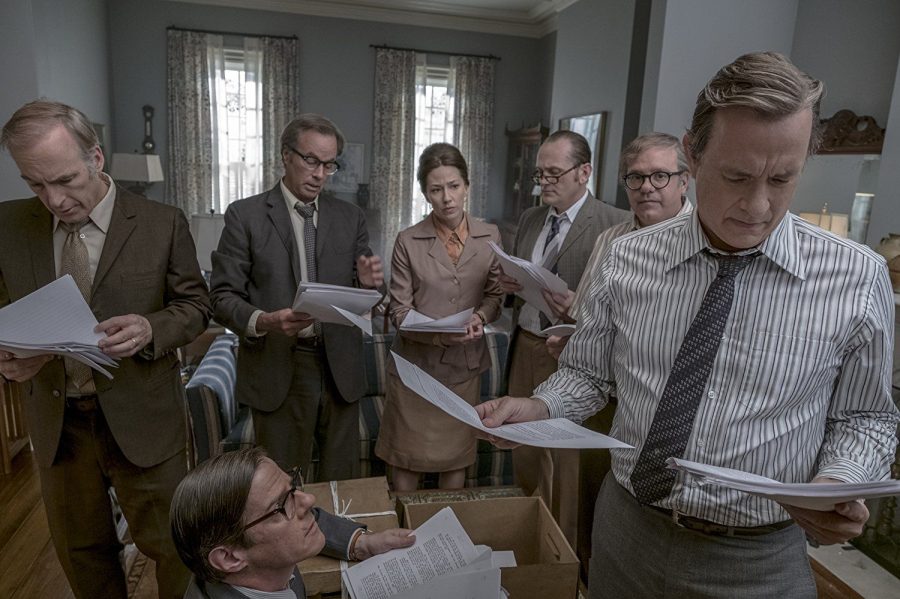‘The Post’ emphasizes journalistic integrity despite historical inaccuracies
‘The Post’ balances modern political commentary with an examination of gender roles in the workforce of the 1970s.
In a time when the president attacks journalists, “The Post”serves as an example of what a free press can accomplish.
Directed by Steven Spielberg, the film stars Meryl Streep as Katharine Graham, the owner of The Washington Post. Graham is emblematic of what a woman in power can do and because of her decisions, a large number of the Pentagon Papers, top secret documents about the Vietnam War, were released. Surrounded by powerful men like Ben Bradlee (Tom Hanks) and struggling to uphold the legacy left to her, Graham is presented as a woman trying to gain respect for herself. A majority of the film consists of Graham being spoken over, ignored and closed out of conversations entirely. While at times this display of blatant misogyny can feel blunt and overdone, it is an interesting look into what it was like to be a woman in the 1970s.
Streep’s acting was, as always, superb. Her command of emotion in Graham was moving and compared to some of her former roles, Streep took on one of her more delicate roles. Scattered throughout the film, there were many instances of female solidarity, a welcome sight in modern America. Streep’s character had a poignant discussion with her daughter in which she explored what it meant to be a woman doing a job she wasn’t welcomed at. This close-hitting reflection on women in society provided a reminder that even though it has been over 40 years since the events of the movie, much of the same misogyny exists today.
The similarities between the heavy-handed President Richard Nixon and our current president were also obvious, but needed in a film on the importance of the freedom of press. Bradlee reminded Graham that the buddy-buddy nature of government and press can’t continue to survive in their time, providing a somewhat bittersweet reminder of what once was a relationship not clouded by animosity and distrust.
While both the content and execution of the film were entertaining and worth a re-watch, the pace of the film was at odds with the frenzied actions of the main characters. The film begins in Vietnam during a firefight, then moves forward in time to the subdued locale of the newsroom.
The film does not accurately portray the level of involvement The New York Times had in the release of the Pentagon Papers, according to James Goodale, the former vice chairman for The New York Times.
“It downplays the role of the true catalyst in the real life drama: The New York Times,” Goodale said. “In fact the Post had as much to do with the Pentagon Papers as the Times did with Watergate.”
Despite the historical anomalies, overall “The Post” was enjoyable to watch. It included a positive message to the women watching and a promise to all viewers that the press will continue to stand tall in American society.












